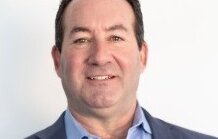 Is it time to wean Fannie Mae and Freddie Mac from the Federal Reserve Bank?
Is it time to wean Fannie Mae and Freddie Mac from the Federal Reserve Bank?
Or is it too soon to phase out the Fed's so-called ‘quantitative easing program,’ with its monthly purchase of $85 billion in government bonds, including $40 billion in mortgage-backed securities?
On Wednesday, Fed Chairman Ben S. Bernanke said reducing asset purchases too soon could stall the economic recovery – especially with unemployment still high and inflation slowing.
‘A premature tightening of monetary policy could lead interest rates to rise temporarily but would also carry a substantial risk of slowing or ending the economic recovery and causing inflation to fall further,’ Bernanke said in testimony to the Joint Economic Committee of Congress, as reported in the New York Times.
Fed officials, however, are divided on whether to – or how to – curtail the Fed's backing of Fannie and Freddie.
In a Bloomberg report, Federal Reserve Bank of Dallas President Richard Fisher said the central bank should begin to taper the ‘easing’ program, now that the economy is improving.
‘My personal view is that housing has recovered sufficiently so that we can turn down the rate of purchase of mortgage-backed securities,’ Fisher said during a community forum in Nacogdoches, Texas, on Wednesday, according to the report.
Fisher, however, said he supports phasing out the program gradually. He likened the U.S. economy to a patient who has just come out of the emergency room: The patient, who just barely made it through surgery, needs to learn to ‘walk’ before he can ‘run,’ he said.
Philadelphia Fed President Charles Plosser has also called for dialing back the program – perhaps starting as soon as the Fed's next meeting in June.
Conversely, Eric Rosengren, president and CEO of the Federal Reserve Bank of Boston, said low inflation and high unemployment means there may be a need for even more stimulus, according to the Bloomberg report.
And James Bullard, CEO of the St. Louis reserve, said the Fed should continue with the program because it is the best available option for boosting growth that is slower than expected.
Other officials in the Fed are on the fence – for example, Federal Reserve Bank of New York President William C. Dudley said Wednesday he hadn't decided yet whether the program should be curtailed or expanded.
Most Fed watchers are of the opinion that the Fed will continue to take a ‘wait and see’ approach, due the fragile state of the economy.
Erik Johnson, an economist with IHS Global Insight, told the New York Times that the Fed is unlikely to take action during its meeting next month.
‘It's been on the minds of [Joint Economic Committee] members, but I don't think the minutes mean they’re going to collectively take their foot off the gas in June,’ Johnson said in the NYT report.
He said lawmakers are more likely to wait until this summer to make a decision.











